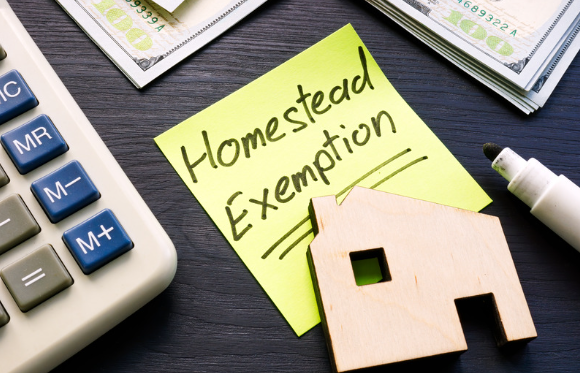The Homestead Exemption is a valuable benefit that can help homeowners save on property taxes. This exemption is available in several states across the United States, providing financial relief to eligible homeowners. In this blog post, we explore how eligible homeowners can take advantage of this valuable benefit.
States offering the Homestead Exemption:
The Homestead Exemption is not available nationwide. If your primary residence is in one of the states listed below, you may be eligible:
- Florida
- Texas
- Georgia
- South Carolina
- Alabama
- Mississippi
- Louisiana
- Arkansas
- West Virginia
- Iowa
(Note: This list is not exhaustive, and the availability and details of the Homestead Exemption may vary. Check with your taxing authority for up-to-date information.)
If you are looking to reduce your property tax expenses with a Homestead Exemption, here’s what to do:
- Check your eligibility: Before applying for a Homestead Exemption, contact your taxing authority or check the official website for eligibility criteria. Eligibility often depends on factors such as primary residence status, ownership duration, and residency status.
- Where to apply: Typically, you can obtain the Homestead Exemption application and instructions from your local tax assessor’s official website or office.
- Mind the deadline: Once the application is complete, submit it to the local tax assessor’s office before the specified deadline. Some states may have specific deadlines for filing, so it’s crucial to adhere to these timelines if you are looking to reduce your taxes as soon as possible.
- Completing the application: Fill out the application form with complete and accurate information. Be sure to provide any required documentation, which may include proof of residency, property ownership, and other relevant details.
- (Patiently) wait for approval: After submitting the application, you will need to wait for the tax assessor’s office to review and approve their request. This process may take some time depending on the taxing authority.
- Stay informed about reapplication: Contact your taxing authority to find out whether you need to reapply for the Homestead Exemption each year. While many exemptions are typically renewed automatically, it’s essential to verify the specific requirements with your local taxing authority.
Remember, eligibility criteria and filing deadlines can change and vary, so it’s advisable to check with your taxing authority for the most current and up-to-date information.
Enjoy savings! If approved, expect a portion of your property tax bill to be exempt! The amount saved varies by state and local regulations, but once approved for the Homestead Exemption, homeowners typically receive the exemption each year thereafter without having to apply annually.
If you have an escrow account set up for your property taxes, it is important to tell your mortgage servicer once your homestead exemption is granted. If Cornerstone Servicing is your mortgage servicer and you have received written confirmation from your taxing authority, you can log into our website or app and send us a secured message with the scanned documentation attached. Please contact us if you have questions or need more information. We’ll be happy to help!
For educational purposes only. Please contact your Cornerstone Loan Officer or our Direct Lending team for specific guidance.

